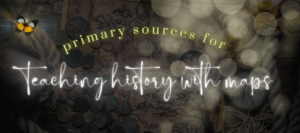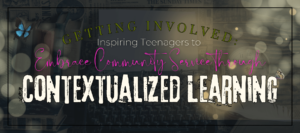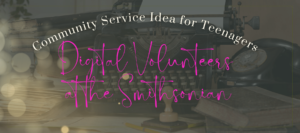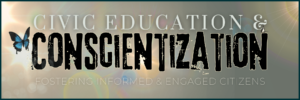For feminist teachers who want to put theory to action, here are “building blocks” of strategies I have used over the years to guide how I set up and establish my classroom environment throughout the school year. I have not been able to do everything perfectly, nor have I been able to achieve everything to my satisfaction every year. But overall, this is the collection of notes, observations, guidelines, and actionable strategies that frame my hopes and dreams for building classroom community. Some of these lend themselves to any and all subjects, and some, obviously, have been used specifically for gender studies courses with juniors and seniors in high school or in a university setting with adult learners.

confidentiality
Confidentiality is important to group work. Group members need to feel they can speak freely and in confidence. It is appropriate to discuss this in the early forming of the group — and bears repeating. The group members can share their own understandings and needs for confidentiality, and, if necessary, what happens if confidentiality is breached.
The facilitator(you, usually) needs to describe what confidentiality means from her perspective. This includes informing the group of her responsibilities as a mandatory reporter and any other information she may be required to report. But it doesn’t end here… this is just the starting off point.
An eye-to-eye pledge with each other may provide a way to reach agreement on confidentiality. It is important for you as the facilitator to also take the pledge (and stick to it!).

trust
This is tricky. There is trust within the group, meaning providing the structures, parameters, and opportunities for the students to build trust among each other, and there is the very different endeavor of earning and maintaining students’ trust of you.
They are similar but different, and both need to be approached intentionally and with great care.
building group trust
Trust develops through time and experience within the group.
To establish trust, there first needs to be group agreements on what that means. This deserves time and energy when setting your class up for the year. As their fearless leader and default facilitator, you can model this from the first moment and every day after:
Be trustworthy.
Tell the truth.
Admit errors.
Stephen Covey suggests one way to think about it is a “trust account” a way of making investments in relationships. There are ways to deposit into the account: listening and understanding the person, keeping commitments, clarifying expectations, expressing appreciation, keeping confidence, being loyal to those not present; and apologizing when you make a withdrawal.
When mistakes or miscommunications are made, established trust can counterbalance the withdrawal. With ongoing relationships, and especially in group relationships, it is important to establish the expectation of trust early.

respect
Treating others respectfully is important in creating a group experience that feels successful. While many of us would say we are respectful of all people, most of us hold judgements about people who are different than ourselves. Many times, these beliefs are founded in myths or stereotypes. This class has the potential to bring students together around shared concerns while keeping diversity intact. Recognizing our own values and judgements is the first step to understanding them (and if necessary, monitoring them!)
Avoid sexist/racist/classist/heterosexist and other language or comments that shut down safety. Obviously. You need not agree with the viewpoints or life to offer them a safe place to explore any of the material in this class… or in the larger world. It is important to recognize that respect for others should extend beyond those in this group.
Ultimately, the goal here would be to create an atmosphere of tolerance and understanding for all groups of people.
Be aware that we may have closeted individuals among us who are not yet willing to reveal things about themselves to us. They might not yet have revealed things to themselves. This belongs to them and only them. Avoid making assumptions about group members: their lifestyles, past or present experiences, or owning abusive actions. And trust that you will be granted the same grace.
Above all:
IT IS NEVER APPROPRIATE TO ASK ONE PERSON TO BECOME A SPOKESPERSON FOR A PARTICULAR GROUP THEY BELONG TO.
This is called tokenism. Its gross. It is also an element of oppression. By asking someone to give you the “perspective of…”, you are perpetuating cycles of systemic oppression on an interpersonal level. Look you can teach a whole unit on it. This is literally the most straightforward level of systemic oppression to disrupt. You need to hold yourself accountable for your own learning, biases, and shortcomings.
Check your privilege. You are the only one who can do this for yourself.
Don’t be an asshole.
You’re welcome.

disclosure & support
Most women have experienced some form of violence in their lives, even at the young ages of your students.
In this vein, it is probably not a stretch to also assume that most non-men have experienced some form of violence in proportion to the violence experienced on a personal level by men and boys.
One of the potential ramifications of successfully earning the trust of your students and of successfully building a community of trust among them is that they will share their real stories. Be prepared for disclosures of violence and other negative experiences which may have a huge impact on the group and should be handled carefully. You won’t see it coming.
You will not be prepared.
It will happen anyway.
And your students are going to need you to keep it together and model what it looks like to listen to a survivor.
Never forget that in your role as the teacher, eyes are always on you, you are never “off”; every moment you are interacting with young people, you are teaching, whether you doing so intentionally or not. There is no backstage.
While there is no one right way to handle this and each situation is unique, UNDER NO CIRCUMSTANCES SHOULD YOU DECIDE FOR SOMEONE THAT THEY HAVE BEEN ASSAULTED IF THAT IS NOT HOW THEY DEFINE THEIR EXPERIENCE.
I say this here in bold all caps letters as though I am screaming because this is something that I also express to students- and after over a decade of working with teenagers I think I still feel the need to make a dramatic performance of the main, crucial points for those students who have selective attention spans. This is something that does not seem to be communicated in the mandatory trainings at the beginning of the year or any health classes that I have observed, and seems to be something people who are not survivors do not consider. Let me just yell it again.
UNDER NO CIRCUMSTANCES SHOULD YOU DECIDE FOR SOMEONE THAT THEY HAVE BEEN ASSAULTED IF THAT IS NOT HOW THEY DEFINE THEIR EXPERIENCE.
This can seem complicated when talking about domestic violence issues because of myths, etc., but Remember: denial is a form of protection.
This gets tricky when you are a mandatory reporter. I found myself in this situation one time. I chose to go with my heart and my training, and not define the young girl’s experience for her. Given the opportunity, I would do it again. It wasn’t my call to make, it was hers. And when she did report it, I watched how the admin. at our school lost no time in further traumatizing this girl with their desperate, cruel incompetence. Another story for another time.
Anyway.
Share information that can help women understand their experiences in different perspectives, but trust them to know when they are strong enough to define their own experiences.
Part of what violence in any form can do is take away a person’s ability to believe themselves- their ability to trust their own account of things.
Don’t be the asshole who further perpetuates this belief by continuing to take their power to tell their own story away from them. Sometimes it’s the only semblance of power they have left.
On the flip side here, if you are a mandatory reporter, it is really important that you be upfront about this, and be really clear about what kind of information you will have to “mandatory report”.
I have my own opinions about this, rooted in my own anarchist ancestry and deeply rooted suspicion of law enforcement, but for brevity and practicality’s sake: you need to be 100% upfront about your mandatory reporting rules. Sometimes this means that you are not allowed to be in the room, or part of a discussion, and sometimes this means that some people will not be able to share.
None of this is flawless; this will always be messy.
There is also the additional layer of being a survivor of violence yourself. If you carry this as part of your story, be gentle with yourself. Do not fall into the trap that requires you to check your humanity at the door when you become “the teacher”. Just because you are technically the adult in the room doesn’t mean all your experiences dissolve and you are now impenetrable.
Do not abandon yourself.

ground rules
This refers to a way to establish the needs and expectations of the group. In addition to “rules”, I make sure there is always an ongoing, “living” conversation about how the will they hold each other -AND YOU!- accountable to the rules.
Accountability by and for everyone is important, otherwise there is no safety for anyone. Plus, without accountability, the rules aren’t really rules, they are more of “requests”.
Encourage students to be flexible as the process continues, as participants may want to add or change the ground rules.
If this happens, it means they are taking it seriously. This is good! This comes back to the heart of modeling democracy, and of education as the practice of freedom- consent of the governed, and all that. What would it look like if we were all in charge of upholding the rules we are expected to follow? And if its not working, its up to us to address it.
Its chaotic, its never perfect. Often times, it creates more work for you than it solves, but ultimately it is the process of having these conversations, and of holding space for students to question power structures in an institution that relies on all of you never questioning these very dynamics that is the whole point.

check in/check out norms
This refers to the structure of your time together, and of how people are to enter and leave your space. For example, to start class, everyone makes a brief statement on how she feels right at the beginning of each session… in addition to helping you assess where individuals are at, it helps create a group tradition, which builds cohesiveness. The same goes for a closing circle or routine will also bring everyone back together.
One thing that requires more thought and intentional practice would be to establish how to announce your entry and exit in the room, and make sure this is for everyone, and applies no matter what time a person enters or leaves.
Yes, this includes the bathroom.
It holds everyone accountable for the space that you are creating together, and signals that each and every single person in that room matters.
We each deserve to know who is in the room with us. We each deserve to make our presence known. We each matter.
It is one thing to say the words, its another to follow through and show that you mean it.

reward small victories
This is an everyday habit to model and encourage.
Thank people for contributions in however they are able to contribute, restate important points raised by individuals and acknowledge them; encourage students to think about others in the group as individuals a whole world attached to them, not just fellow students they are forced to sit with… and make sure to congratulate them when you see them doing so.
It doesn’t have to be a big deal, and it doesn’t have to be loud. It can be to just one student at a time.
Make a point to find something unique to praise about each and every individual kid in your class in a way that will matter to them.
Above all, be gentle.
I hope this was useful.
xoxo
– Sara













